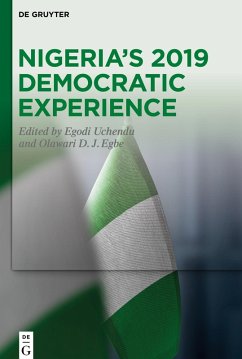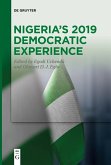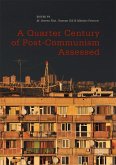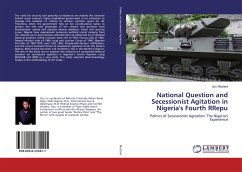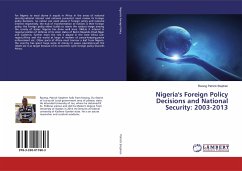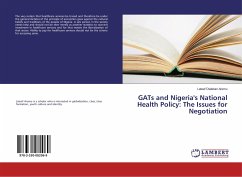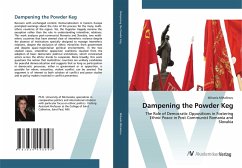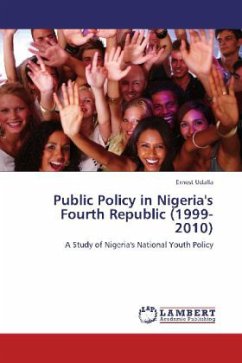Nigeria's democratisation efforts since attaining political independence from Britain have been tumultuous and have spanned over three successive republics. A persistent bug decimating Nigeria's democracy and repeatedly leading to military coups has been brazen electoral violence perpetrated by the nation's political elite. Nigeria's 2019 Democratic Experience analyses and explains what went wrong in Nigeria's experiment with democracy.
Nigeria, Africa's most populous nation and the world's seventh most populous nation, also contributes 70% of West Africa's population. She is sub-Saharan Africa's largest oil producer and has remained Africa's largest economy by GDP since 2014. The country has hundreds of diverse ethnic nationalities and languages grouped into 36 states (or federating units) and an independent federal capital territory.
Though recognized as Africa's largest democracy, her democratisation process since the 1960s has remained tumultuous with massive electoral violence and political intolerance. This repeatedly compelled the military to intervene in the nation's political history in the years 1966, 1983 and 1985. It is these developments that provided the motivation for this volume to capture for posterity the conduct of the 2019 General Elections in Nigeria.
Hinweis: Dieser Artikel kann nur an eine deutsche Lieferadresse ausgeliefert werden.
Nigeria, Africa's most populous nation and the world's seventh most populous nation, also contributes 70% of West Africa's population. She is sub-Saharan Africa's largest oil producer and has remained Africa's largest economy by GDP since 2014. The country has hundreds of diverse ethnic nationalities and languages grouped into 36 states (or federating units) and an independent federal capital territory.
Though recognized as Africa's largest democracy, her democratisation process since the 1960s has remained tumultuous with massive electoral violence and political intolerance. This repeatedly compelled the military to intervene in the nation's political history in the years 1966, 1983 and 1985. It is these developments that provided the motivation for this volume to capture for posterity the conduct of the 2019 General Elections in Nigeria.
Hinweis: Dieser Artikel kann nur an eine deutsche Lieferadresse ausgeliefert werden.
"In this scholarly work, Nigeria's 2019 electoral exercise comes under academic scrutiny, from analysts, who leave no stone unturned in their illuminating critique. The text captures the agony, contradictions and exhilaration associated with ballot box elections."
Professor Gloria Emeagwali, Central Connecticut State University
"Elections in Africa are problematic. This is an incontrovertible statement. The point of contestation, however, is why this is the case. In this book edited by Egodi Uchendu and D. J. Egbe, the voices of engaged scholars are brought together to provide a coherent and plausible explanation. The papers collected in this book offer penetrating insight into Nigeria's democratic experience in the present decade. The diversity of viewpoints expressed are connected by the common goal of helping the reader to think critically about political history and experience. Scholars and general readers have a lot to learn from this timely and important book."
Uchenna Okeja, Professor and Head of Philosophy Department, Rhodes University
"Egodi Uchendu and Olawari Egbe's edited volume on presidential electioneering politics in Nigeria in 2019 has exposed the disease that still plagues African nascent democratic experience. Hope for a better future continues to be a distant dream that we think will not be deferred."
Professor Kehbuma Langmia, Howard University
"The book Nigeria's 2019 Democratic Experience brings together well-curated essays to understand Nigeria's particularities and broader issues in its democratic process. This book is a welcome addition to the stock of knowledge on the context and challenges of elections in Africa. This is a keen collector's delight."
Temitope B. Oriola, Past President, Canadian Association of African Studies (CAAS) and Professor of Criminology & Sociology, University of Alberta, Canada
Professor Gloria Emeagwali, Central Connecticut State University
"Elections in Africa are problematic. This is an incontrovertible statement. The point of contestation, however, is why this is the case. In this book edited by Egodi Uchendu and D. J. Egbe, the voices of engaged scholars are brought together to provide a coherent and plausible explanation. The papers collected in this book offer penetrating insight into Nigeria's democratic experience in the present decade. The diversity of viewpoints expressed are connected by the common goal of helping the reader to think critically about political history and experience. Scholars and general readers have a lot to learn from this timely and important book."
Uchenna Okeja, Professor and Head of Philosophy Department, Rhodes University
"Egodi Uchendu and Olawari Egbe's edited volume on presidential electioneering politics in Nigeria in 2019 has exposed the disease that still plagues African nascent democratic experience. Hope for a better future continues to be a distant dream that we think will not be deferred."
Professor Kehbuma Langmia, Howard University
"The book Nigeria's 2019 Democratic Experience brings together well-curated essays to understand Nigeria's particularities and broader issues in its democratic process. This book is a welcome addition to the stock of knowledge on the context and challenges of elections in Africa. This is a keen collector's delight."
Temitope B. Oriola, Past President, Canadian Association of African Studies (CAAS) and Professor of Criminology & Sociology, University of Alberta, Canada

